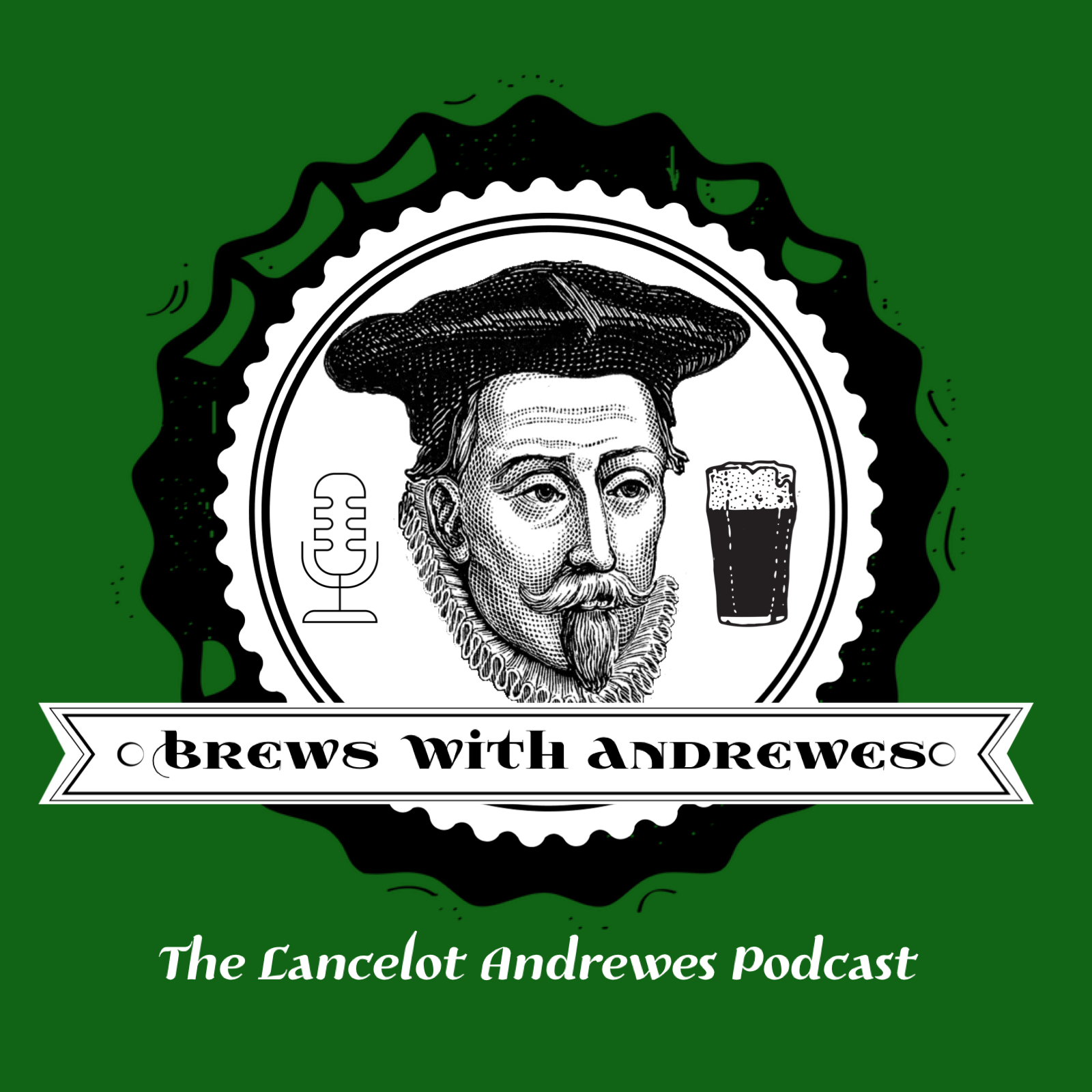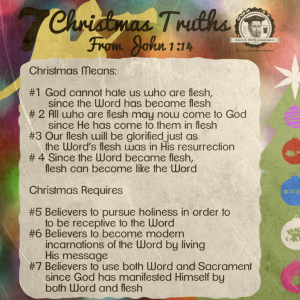
1.1K
Downloads
12
Episodes
What would it be like to grab a brewski with Bishop Lancelot Andrewes? Fr. Michael and Fr. Allen of St. Michael the Archangel Anglican Church Charolette invite you to the table for a drink and to discuss the works of this quintessential Anglican and famous Caroline Divine in order to see what he would have to say about the world in which we live.
Episodes

Friday Jul 17, 2020
Friday Jul 17, 2020
Sermon 6 of Lancelot Andrewes’ Sermons of the Nativity preached before King James at Whitehall on Wednesday, December 25, 1611.
A copy can be found in Lancelot Andrewes Works, Sermons, Volume One or on The Project Canterbury Website.
If you do download a copy of the sermon from Project Canterbury note that the “Ô” and “Õ” symbols are equivalent to quotation marks and that some of non-modern English languages have not transcribed well.
In this sermon, Andrews expounds upon St. John’s eye-witness testimony in 1:14 of how he, Peter, and James truly beheld the undeniable divine glory manifested by the Son, who is the living embodiment of the eternal Word (the nature, wisdom, and life of Yahweh), when Jesus altruistically full of grace and truth lovingly condescended to be made flesh (the vilest, weakest, and wound-able part of humanity) in order to abide with estranged humanity, to invade a world taken hostage ever since humanity’s fall, to serve as humanity’s champion in order to liberate them from their oppression, and to acceptingly adopt and truthfully transform humanity out of their empty state.
Although the first part of the sermon is somewhat difficult to follow, the outline laid out by Andrewes is very simple:
- Introduction: the nature of St. John’s Gospel
- The Mystery: The Word Became Flesh
- Significance of the words: “Word” “flesh” and “made”
- Significance of “glory,” “grace and truth,” and “full”
- The Benefit: What the Word did for Flesh
- 1: God cannot hate us who are flesh, since the Word has become our flesh.
- 2/Hope 1: All who are flesh may come to Him who has become flesh as they are.
- 3/Hope 2: As He restored His own flesh thru Resurrection, so He will do for His own.
- 4/Hope 3: Since the Word became like those of flesh, now those who are of flesh can begin the process of becoming like the Word (glorification/theosis).
- The Duty: What Flesh is to do for the Word, again
- Pursue Holiness: While the Word become our flesh, He kept it orderly and subdued allowing glory to be what seen in His living; so show those who received Him (receive Him not into a stable, but a decent and orderly home).
- Be an Incarnation: As Word became flesh for us, so we ought to incarnate His spoken word in our flesh for Him. And this we do not in fleeting spits and spurts of faithfulness, but in an abiding faithfulness that remains in all seasons.
- Use the Sacraments (Hope 4): As the Son has now chosen to communicate Himself by both natures of Word and Flesh, so we ought to receive Him by both: Word and Sacrament together.
- Conclusion: Christmas is the Feast celebrating the union between Word and Flesh, and by celebrating it we procure a dwelling for Him in our own lives wherein He may fill us with grace and truth.
Music & Sound Attributions:
Music in this episode by Blue Dot Sessions “Lost Shoe” (www.sessions.blue). Sounds used are as follows: “Beer Can Opening” recorded by Mike Koening found at (http://soundbible.com/216-Beer-Can-Opening.html), “Pouring Drink” recorded by Mike Koenig found at (http://soundbible.com/2115-Pouring-Drink.html), and “Time Warp” recorded by Mike Koenig found at (http://soundbible.com/978-Time-Warp.html)

No comments yet. Be the first to say something!